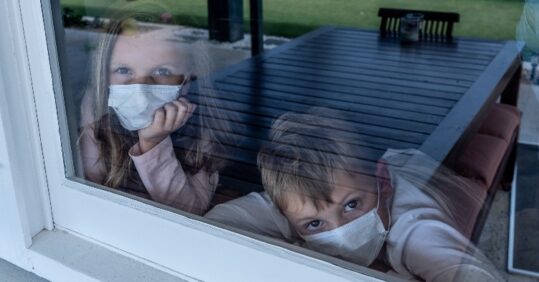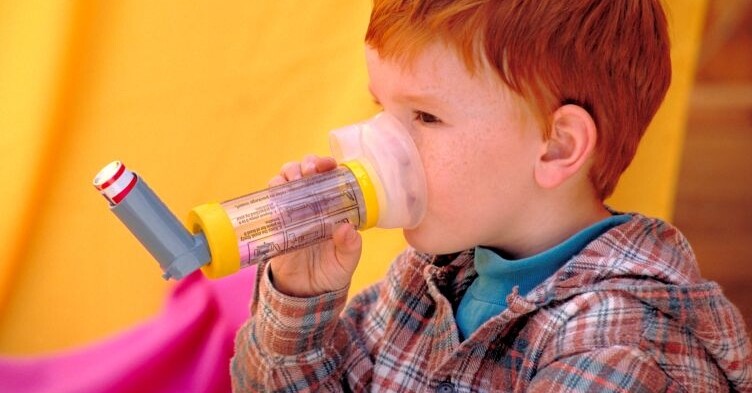Primary care’s role in mitigating the impact of Covid on children’s mental health

As vaccinations begin to bring the Covid pandemic under control, attention is beginning to shift to its effects on the mental health of the population, particularly children. There has been speculation that isolation from friends, the impact on education, and the constant media focus on deaths and illness may have a particularly damaging effect on children and young people. What does the evidence show and what can we as health care professionals do to help?
In her January 2021 report, the then children’s commissioner Anne Longfield stated ‘there is now very strong evidence that Covid has had a big impact on children’s mental health’. She cited evidence that referrals to mental health services were 72% higher in September 2020 than a year previously, and that access to those services was ‘still not adequate’.1
Other research paints a similar picture. A Lancet review showed children’s mental health problems rising from 10.8% to 16.0% under lockdown, with young women particularly badly affected. Disrupted sleep, loneliness and fearfulness were the main symptoms reported.2 These effects are not confined to the UK; studies from around the world show similar patterns, with a roughly doubling of clinical depression in China, and high levels of irritability, nervousness and anxiety in both children and their parents in Italy and Spain.3 These studies are reflected in our local Clinical Commissioning Groups (CCGs), where referrals have increased, particularly for eating disorders and body image issues.
A review by the Mental Health Foundation tried to unpick some of the underlying reasons for these findings. 4 Some, like constant news of deaths on the television, isolation from friends and disruption of learning may seem intuitively obvious. But previous epidemics have had a very variable impact. Quarantine for H1N1 influenza for instance had no apparent negative psychological effects, whilst stress scores for post-traumatic stress disorder (PTSD) quadrupled in children quarantined during the severe acute respiratory syndrome (SARS) epidemic.
During the current pandemic, young adults seemed particularly affected, possibly due to increased consumption of social media (which may also feed the body image issues mentioned previously). The plight of young carers was highlighted as particularly difficult, with over half feeling overwhelmed and stressed. As well as the effects on the individual, impacts within the family and school needed to be taken into account. We know that traumatic events during childhood can have long-lasting effects on mental health. Such traumatic events include witnessing violence, abuse, and neglect in the household, substance abuse, mental health problems, parental separation and an overall lack of sense of safety, stability and bonding within the household.5 High levels of stress have been experienced by families, particularly key workers. Alcohol, drug abuse and domestic violence witnessed by children have all increased, and a particular anxiety amongst professionals is the lack of visibility of children already at risk of abuse in the home.
It may be thought that as restrictions ease, things will improve, but many of my colleagues fear not only for the legacy of psychological damage, but that another group of people who have found social avoidance quite comfortable will experience increased stress levels as society unlocks.
Related Article: NHSE confirms dates and eligibility for autumn Covid and flu jabs
One important factor to bear in mind is that although we have all gone through the pandemic together, our experience of it is unique. We may have had the loss of job or income, experienced isolation from loved ones, illness or bereavement, or had our life plans put on hold. Many of us will have experienced the terror of feeling we are unable to breathe during Covid or the persisting ill health of long Covid (I have had both). We know that some groups, particularly BAME, those with both general or digital poverty, the elderly, and key workers have been disproportionately affected, raising concerns about increased inequality. For instance, children with a mental disorder were over a third more likely to have seen or heard an argument among adults in the household and more than twice as likely to live in a household that had fallen behind with payments.6
We have to remember too that the experience of the last year has been positive for some. Many of my patients report decreased pressure from social events or long journeys to work, and some, though by no means all, children have enjoyed the experience of being with their family more. The predicted rise in suicide rates has not, thankfully, emerged so far, and as well as the gloom we have had inspirational stories. It is hypothesised that the shared experience may have mitigated some of the damage.
What can we as health care professionals do to help those affected by the pandemic? The Mental Health Foundation recommend that the most important factor is to validate the individual experiences of those who have gone through the pandemic. Nurses are the most trusted individuals to give health advice, and can help counter misinformation and give impartial health advice.
We will often know the families well, and may be in a position to spot problems that might otherwise be missed. Signs of mental ill health amongst children include persistent sadness, avoiding social interactions, hurting oneself or talking about hurting oneself, death or suicide; irritability, or out-of-control behaviour, changes in behaviour or eating habits, loss of weight, difficulty sleeping or frequent headaches or stomach-aches.7
Finally, many areas have introduced new services to support the mental health of our patients, so it is important for us to familiarise ourselves with the local help available, as well as national resources such as the NSPCC or Young Minds.
Practice points for recognising mental health issues:
| – Are they in a vulnerable group: do the notes make reference to mental health issues within the family, drug or alcohol abuse or any safeguarding issues? – Are there any changes from their normal demeanour: more quiet and withdrawn, or alternatively out-of-control behaviour and irritability? Are they reluctant to return to school? Do they present with unexplained physical symptoms? – As ever, listen to your patients. Mention of death, self-harm etc should always be taken seriously. If there are any concerns, do refer them for further assessment. |
Resources:
https://www.nspcc.org.uk/keeping-children-safe/childrens-mental-health/depression-anxiety-mental-health The NSPCC is primarily concerned with protecting children, but also has useful mental health self-help advice
Related Article: Practice dilemma: How can I diagnose asthma without access to tests?
https://youngminds.org.uk/ has advice on specific topics as well as a parents’ helpline 0808802 5544
https://somersetemotionalwellbeing.podiant.co/ Our own resource for boosting emotional resilience
References
2. Newlove-Delgado T et al Child mental health in England before and during the COVID-19 lockdown The Lancet Psychiatry January 11, 2021
3. Wagner, K.D. New Findings About Children’s Mental Health During COVID-19 Psychiatric Times October 2020
Related Article: Women who work night shifts more likely to have asthma
5. Center of Disease Control and Prevention. Preventing Adverse Childhood Experiences https://www.cdc.gov/vitalsigns/aces/index.html
6. https://digital.nhs.uk/data-and-information/publications/statistical/mental-health-of-children-and-young-people-in-england/2020-wave-1-follow-up accessed February 2021

See how our symptom tool can help you make better sense of patient presentations
Click here to search a symptom


We know that traumatic events during childhood can have long-lasting effects on mental health.



